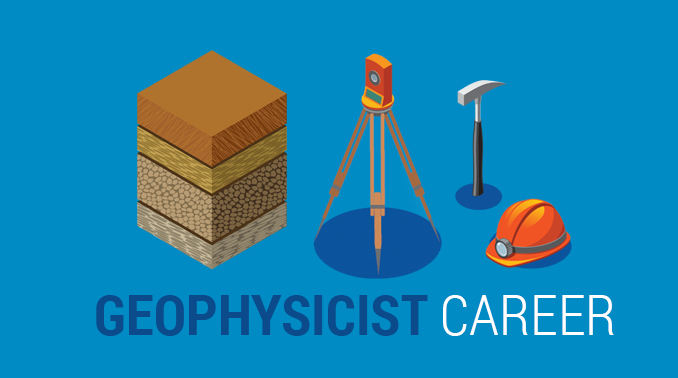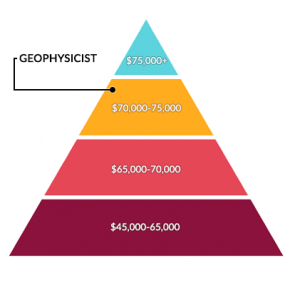All Categories
Featured
Table of Contents
Bachelor's Degree In Geophysics - Degrees & Programs in Gooseberry Hill Oz 2022

Other possible geophysicist majors that aren't geophysics or geoscience include: Atmospheric sciences and meteorology Chemical and physical oceanography Earth science Environmental science Hydrology and water resources science Materials science By making any geophysicist degree, and by taking the needed geology courses, you need to qualify for an entry-level position as a geoscientist or geophysicist.
Eventually, students must discover: a branch of geology that looks at the different aspects of minerals, consisting of chemical structure, internal crystal structure, and physical properties. the study of rocks and the procedures and conditions that form and change them over time. There are a couple of subdivisions in this branch of geology, including igneous, metamorphic, and sedimentary rocks.

This field examines structural rock functions such as cleavage, faults, joints, and little folds. They must also find out the computer abilities needed to: analyze data develop digital models and maps run geoscientists' software Students need to also take advantage of all opportunities to get real-world experience. Aspiring geophysicists must expect to invest time knowing: in the classroom in the field in laboratories Undoubtedly, skills taught in the class are very important for aspiring geophysicists.
Geophysical Investigations in Floreat WA 2021
Geoscientists invest a lot of their time outside when working in the field, so they need to possess "outdoor abilities" like outdoor camping and running boats, aircraft, and other vehicles. Because they spend a lot time in remote places, it's essential that geophysicists likewise have the physical endurance to carry necessary equipment on their walkings to areas of study.
The job provides: a high average and top profits a high rate of individual complete satisfaction amongst geophysicists low work tension positive job outlook More information on incomes potential and job outlook is detailed listed below. For students looking to land an entry-level role as a geoscientist or geophysicist, it takes 4 years, or the time needed to finish a bachelor's degree in geophysics or a related discipline.
Some research positions in geophysics need postgraduate degrees. If you plan to teach at a college or university, you need to make a Ph. D. in geophysics or an associated field. The time it requires to make a Ph. D. differs by institution and program, but it generally takes 4 to 6 years beyond the bachelor's degree.
Geophysical Surveys in Ardross Oz 2021
Many employers require candidates to have a bachelor's degree in geophysics or a carefully related discipline for all entry-level positions. And, in many cases, companies require a master's degree. As an outcome, there's no chance around the degree requirements for becoming a geophysicist. Many companies will anticipate or require a practicing geologist to be accredited for positions beyond those at the entry level.
Presently, 31 states require licensing for geologists, although licensing is not always needed, specifically for entry-level work. The states that do problem licenses use the Principles of Geology Exam (FGE), which is administered through the National Association of State Boards of Geology (ASBOG). Now that you understand which degree for geophysicist tasks you need, you'll require to land a job, and it's crucial to learn just how much cash you can make in this profession.
According to BLS, the median annual wage for geoscientists is $93,580. The most affordable 10% of earners make less than $52,000, while the highest 10% make more than $201,000 every year. Salaries vary by market type and geographic location. According to BLS, specific markets offer higher incomes for geoscientists, and in many cases, they offer higher-than-average profits.
How To Become A Geophysicist in Palmyra WA 2020
In fact, mining, quarrying, and oil and gas extraction offers over $32,000 more each year than the typical annual wage for this profession. The federal government, too, offers over $10,000 more in profits than the nationwide average for geoscientists. In addition to market type, geographic location can significantly impact revenues for this occupation.

The top-paying states and their annual mean incomes, according to the BLS, include: Texas $166,720 Oklahoma $149,630 Pennsylvania $120,590 Hawaii $120,130 Colorado $107,260 These five top-paying states use much higher wages than the average for this profession. Earnings for geoscientists in Texas are over $73,000 greater than the national average.
It must come as not a surprise that many of these high-paying locations remain in Texas and Oklahoma, but some are found in California, Louisiana, and Colorado. The leading 10 highest-paying city locations for geoscientists are: Houston-The Woodlands-Sugar Land, Texas: $188,400 Tulsa, Oklahoma: $186,490 Midland, Texas: $167,040 Odessa, Texas: $147,080 Oklahoma City, Oklahoma: $145,350 Bakersfield, California: $130,080 Urban Honolulu, Hawaii: $124,470 New Orleans-Metairie, Louisiana: $121,030 Washington-Arlington-Alexandria, DC, VA, MD, WV: $120,180 Denver-Aurora-Lakewood, Colorado: $116,910 For some geoscientists and geophysicists, residing in a metro city is not as appealing as living in a smaller community.
Latest Posts
What Is Geophysics And What Do Geophysicists Do? in Sinagra Australia 2023
Geophysics in Beckenham Western Australia 2022
Geophysical Survey - An Overview in West Perth Oz 2020